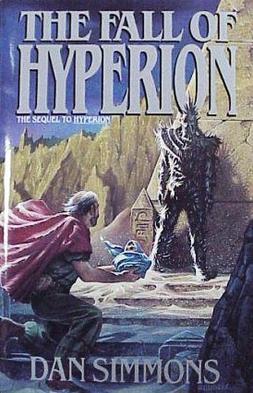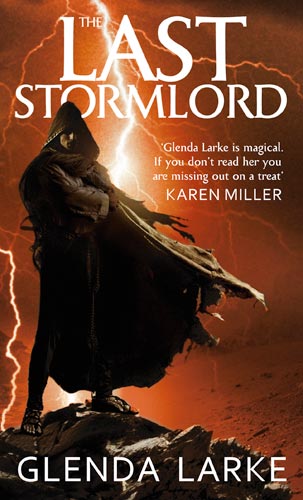The Value of Prevention… and the Question of Responsibility
http://www.lemodesittjr.com/2013/05/31/the-value-of-prevention-and-the-question-of-responsibility/
Another great thought-provoking blog post from one of my favorite authors.
Sunsets, Stars, West, Wind
The Value of Prevention… and the Question of Responsibility
http://www.lemodesittjr.com/2013/05/31/the-value-of-prevention-and-the-question-of-responsibility/
Another great thought-provoking blog post from one of my favorite authors.
Dear SFWA Writers: Let’s Chat About Censorship & Bullying
http://www.kameronhurley.com/?p=13124
My favorite anagram: Listen = Silent
Try it and you might like it and/or learn something.
Did Apple conspire to fix ebook prices? The DOJ takes Cupertino to court on Monday
Somewhat old news in the sense that there’s nothing really new to report. I just wish this case had its sights set on Amazon.
GMO wheat
http://www.kingarthurflour.com/flours/gmo-wheat.html
Another reason to love King Arthur Flour. All my bread is made using their flour.
China’s Food Play Extends Its Reach, Already Mighty
Another reason to shop small, buy local and support your local farmer’s market.
 The Fall of Hyperion by Dan Simmons
The Fall of Hyperion by Dan Simmons
Read in January 2009
Warning: Spoilers
I liked this novel better than the first installment, Hyperion, and it probably rates 3.5 stars. After I sleep on it, I may up my rating to four stars, but for now it will sit comfortably at three stars.
We return to the story very nearly where we left off. Thankfully, Dan Simmons abandoned the Canterbury Tales frame tale format and returned to a more linear point of view. Linear is probably not the best word to fit a tale that spans time and space and the places that exist beyond and between both.
The Titanic struggle of survival of the human race unfolds in spurts through the dreams of Joseph Severn, the reincarnated cybrid that was formerly John Keats. His dreams are the real-time happenings across the galaxy, mostly focused on Hyperion, the stage for the final battle between man and machine.
It’s not until late in the novel that we learn the TechnoCore’s true plans to further enslave humanity to spur its evolution of the Universal Intelligence (an uber AI that is their created or perfected god). The TechnoCore tricks the Hegemony to committing two-thirds of its military to the Hyperion system and fakes a massive Ouster invasion on several key Web worlds. Their goal is to force the humans into the labyrinths, infecting them with the cruciform parasites (which resurrect and reconstruct the dead infinitely, eventually reducing the host to mental retardation but leaving the body and brain intact). The TechnoCore uses human brain/nerve cells for raw computing power and the UI will use the billions trapped in the labyrinth eternally, dooming humanity to slavery and imbecility.
Severn/Keats learns the location of the TechnoCore’s hidden home and relays the information to the CEO of the Hegemony. With only minutes to go before the TechnoCore unleashes a planetary purging via deathwand device aimed at Hyperion, the CEO orders the Web of farcasters destroyed (simultaneously across the galaxy), cutting off all travel and communications, but also destroying the TechnoCore’s haven. Humanity is left to recover without the crutches of TechnoCore technology and in some cases stranded on planets with little or no arable land. Humans learn to adapt and survive.
The irony or pun or twisted morale of the story seemed to hinge upon a literary device referred to as deus ex machina which I had to research to understand. Simmons took the translation quite literally and applied it unforgivingly to his creation.
I was relieved that Rachel was “cured” of her Merlin’s disease but disappointed in the revelation of her alternate identity.
 The Last Stormlord by Glenda Larke
The Last Stormlord by Glenda Larke
Read in June 2010
I just couldn’t buy an entire civilization that refused to seek out new horizons, explore beyond the status quo of barely enough water to survive in a desert, enabling themselves like addicts completely dependent on their next fix of water from their stormlord. I admit, the water magic system intrigued, but did not wow me. It reminded me of a psi-power system more so than an actual magic system.
All the characters fairly brimmed with potential to entice me to care about their predicaments and futures. Something just didn’t gel though, beyond the normal revulsion for obviously despicable villains and those cowardly scheming opportunists that waffle in the wind. The good characters lacked something, but I can’t put my finger on it. Convincing passion? Believable choices? Inspired intelligence?
Finishing the book was a relief. I could finally close the cover and not be beaten over the head with power plays and prison metaphors any longer.
For such a thick tome, I experienced no hindrance to a fairly fast read. Not a lot of subtlety or depth to ponder.
I doubt I’ll ever re-read this and won’t likely continue the series, unless GoodReads reviews by friends proves the next installment aspires to a higher plane of fantastic fiction.
Read in December 2008
It was difficult to stay focused on this novel, its story and it’s characters. If I could, I would probably give this 2.5 stars rather than 3 stars, but I’ll be lenient since was a triple award winner in the 80s.
However, it really hasn’t stood the test of time well. If I had read this when published, which would have been my first year in college as an engineer/math/computer science college student, it would have been cutting edge, or more appropriately, bleeding edge.
But the character development was lost in the weird heist-like saga of these individuals thrown together by an immoral and immortal AI manipulating them and the world. It was sad that I couldn’t care what happened to them or their acquaintances or their world. Some of the action was top-notch, but much of their motivations were harsh, raw and confusing.
I can see where Hollywood has reworked this idea many times over the last two decades, most notably The Matrix and Johnny Mneumonic and a spattering of television episodes (a couple of X Files and a Lone Gunman one that I can remember off the top of my head).
 This Alien Shore by C.S. Friedman
This Alien Shore by C.S. Friedman
Read in February 2010
I guessed the criminal master mind behind this mystery cloaked as science fiction (more speculative fiction than science) within the first one hundred pages. The other 450 pages seemed to be a wild goose chase through inner and outer nets, space stations, nodes and multiverse rifts. Little or no character development left me cold and completely disconnected with the cast. In more than one case, a character was created and destroyed within a single chapter, never to appear again. Many questions unanswered and plot lines left tangled and dangled.
I kept pushing through this book as fast as I could, hoping it would evolve into something memorable or meaningful. I finished dissatisfied.
This was my first C.S. Friedman novel, but I have others on my shelf waiting to be read. I hope this was not the epitome of her writing career.
 The Murder of Roger Ackroyd by Agatha Christie
The Murder of Roger Ackroyd by Agatha Christie
Read in February 2010
I almost gave this book three stars (or less) because of the ending. I was disgusted with Agatha Christie’s cleverness. Up until the last couple of chapters, she strung me along, had me guessing, had me re-reading previous chapters to double-check facts. And them BAM! the last couple of chapters just made me cringe. I won’t spoil the ending or what frustrated me so thoroughly.
All the characters were vividly drawn and enthralling. The plot and storytelling delivered page-turning fervor and middle-of-the-night marathons. The mystery … I can’t comment on without spoiling.
I’ve read two other mysteries by Agatha Christie: And Then There Were None and The ABC Murders. This mystery falls in between those two from a reading and likability standpoint.